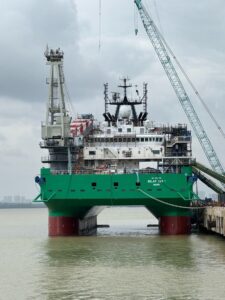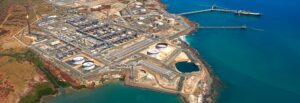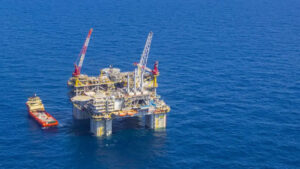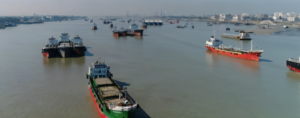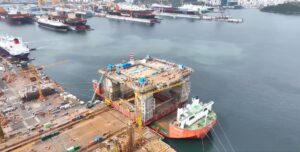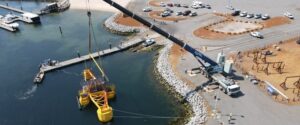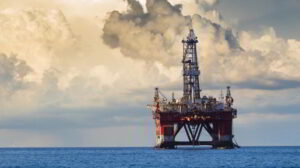Strike action in full swing at Chevron’s Australian LNG facilities
The Offshore Alliance, an alliance between the Australian Workers’ Union and the Maritime Union of Australia (MUA), has confirmed that Chevron is the sole operator of gas fields in Western Australia without an enterprise agreement (EA) with its workforce. As a result, the U.S. energy giant has found itself in hot water, after workers at its Australian LNG projects embarked on Protected Industrial Action (PIA), taking part in rolling stoppages, bans, and limitations.
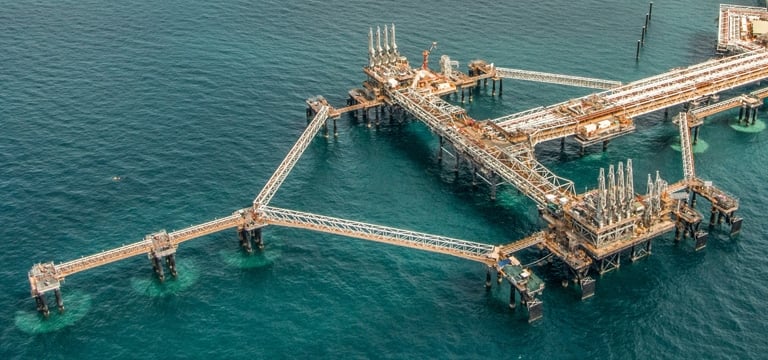
Chevron was served with a formal notice of PIA on its West Coast facilities – Gorgon and Wheatstone – on 28 August 2023, following a 100 per cent ‘yes’ vote from all OA members working on the firm’s facilities. This came after workers at the U.S. player’s downstream services and Gorgon returned their ballot on 24 August while those at the Wheatstone platform did so on 28 August.
Offshore Alliance members at these gas facilities resoundingly rejected the EA, which was not endorsed by their negotiating team. This result is in stark contrast to the results of a recent ballot where 100 per cent voted to endorse protected industrial action at Chevron’s Wheatstone platform, joining Offshore Alliance members at Gorgon and Wheatstone Downstream in endorsing the PIA.
Furthermore, the PIA includes twenty types of industrial action, including numerous work bans all the way up to complete stoppages of work. This legal PIA is sanctioned by Australia’s Fair Work Commission. With no meeting scheduled between the Offshore Alliance and Chevron, the U.S. firm has applied to the Fair Work Commission to seek assistance in dealing with the dispute.
“Offshore Alliance members have been consistently disappointed with the company’s approach to negotiations with the American petrochemical company refusing to accept an industry-standard agreement should apply to their workforce. Many companies across the Western Australian gas fields have successfully negotiated EAs with the Offshore Alliance to cover their workers in the last few years,” underlined Offshore Alliance.
Offshore Alliance members at Shell’s LNG facilities secured an EA last year after 76 days of PIA, members at INPEX secured an EA in 2022 while those at Woodside recently endorsed an in-principle agreement negotiated with the company, with a vote on the EA to follow in the coming weeks, leaving Chevron as the only major outfit on the WA gas fields without an industry standard EA covering its workforce.
Related Article
According to Offshore Alliance, its members working for Chevron have still not reached agreement on several “key claims,” encompassing job security, agreed rosters, mutual agreement on transfers to other worksites, mutual agreement on the working of overcycle, training standards, travel arrangements and rates of pay.
In addition, the workers are seeking remuneration outcomes that align with benchmark industry standards, which apply to Chevron’s contemporaries, Shell and INPEX, and will soon apply to Woodside. In negotiations to date, Chevron has proposed remuneration terms lower than some Tier 2 oil and gas operators in Australian waters, emphasised Offshore Alliance.
Brad Gandy, Offshore Alliance spokesperson, AWU WA Secretary, outlined: “We were disappointed to see Shell engage in an ideological battle with the union last year and as a result lose up to $1.5 billion in lost production during 76 days of industrial action because we knew achieving a resolution would be so easy. We strongly advise Chevron to meet with our members and iron out each point of contention one by one.
“Our members at Chevron quite reasonably just want terms and conditions of employment that meet the industry standard, some say over rosters to ensure they’re family-friendly, and job security so they can’t be replaced by temporary labour hire employees. They also want to reach an agreement on other matters relating to overcycle, training standards, rates of pay, and travel arrangements.
“After this humiliating result at the ballot box with proposed enterprise agreements that Chevron touted as a potential solution to the ongoing dispute, Chevron’s only real option is to change tack and take our members’ claims seriously.”
The strike action kicked off on Thursday, 7 September, and includes 500 alliance members who are participating in rolling stoppages, bans, and limitations, which are expected to escalate each week until Chevron agrees to their terms.
Offshore Alliance claims that Chevron started evacuating its contractor workforce within 24 hours of the PIA starting on its Gorgon and Wheatstone facilities, and chartered a special flight to Barrow Island to evacuate 50 blue and white-collar contract crew off the Gorgon project.
Offshore Alliance is adamant that Chevron has “sabotaged their own maintenance programme as a result of their actions. The Chevron bosses must have spent too much time as kids watching re-runs of Toy Story as their conduct is more akin to Sid’s infatuation with torturing and destroying toys for fun, than running one of the world’s biggest hydrocarbon facilities.
“Our members are bunkering down for a long dispute with Chevron and Chevron better get used to the idea of losing $billions of export revenue in their ideological battle against their own workforce. OA members on the Gorgon and Wheatstone facilities will go one day longer and one day stronger than Chevron.”
Located on Barrow Island, Gorgon comprises a three-train, 15.6 million tonnes per annum (mtpa) LNG facility and a domestic gas plant with the capacity to supply 300 terajoules of gas per day to Western Australia.
The Wheatstone project is one of Australia’s largest resource developments and its first LNG hub. The project consists of two LNG trains with a combined capacity of 8.9 mtpa, and a domestic gas plant. The first shipment of LNG took place in October 2017.

